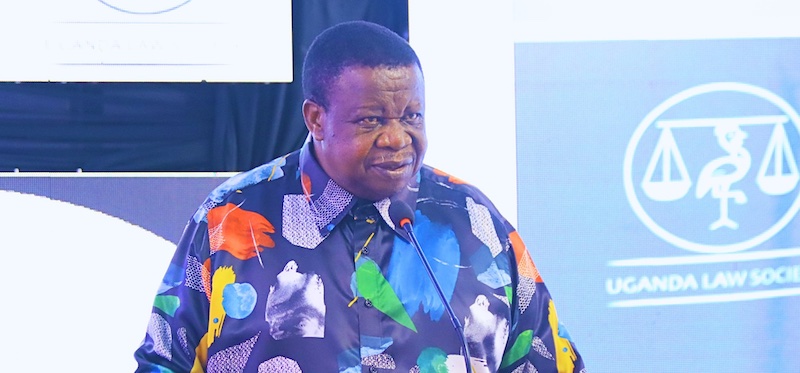
In recent weeks, Major General Kahinda Otafiire, the minister of Internal Affairs, has emerged as a steadfast advocate for human rights, challenging the status quo of arbitrary arrests and extrajudicial killings.
His unwavering stance is a beacon of hope in a landscape often marred by abuses of power, and it is incumbent upon the government to heed his words and adopt a more humane approach to governance. Otafiire’s condemnation of the police shooting of six suspected robbers in Kamwokya is particularly poignant.
On January 13, 2025, police shot dead six suspected armed robbers in Kamwokya, near Acacia Mall in Kampala. The suspects were allegedly planning to target a client who had withdrawn cash from a Stanbic bank branch at the mall.
Police claimed the group was on a wanted list, linked to multiple prior robberies, and that they recovered motorcycles and tools used in the crime. Otafiire described the act before the parliamentary committee on Defence and Internal Affairs, as being carried out “in cold blood,” emphasizing that no Ugandan should be executed or killed without due process.
His insistence that accountability must be maintained for such actions serves as a reminder of the fundamental right to life—a right that should be non-negotiable in any democratic society.
It is alarming that, in a nation that has experienced the horrors of dictatorship, we still find ourselves grappling with the remnants of an authoritarian mindset. Otafiire’s reflections on the historical context of Uganda’s struggles against oppressive regimes highlight the critical importance of protecting citizens from state-sanctioned violence.
The minister’s call for accountability is not merely a rhetorical flourish; it is a vital necessity for restoring public trust in law enforcement and the government as a whole.
Furthermore, Otafiire’s commitment to safeguarding the rights of elected representatives is equally crucial. By warning police against obstructing political rallies, he recognizes that democracy thrives on open dialogue and engagement between politicians and their constituents.
The suppression of such activities undermines the very foundation of our democratic ideals and perpetuates a culture of fear and repression. The ongoing detention of opposition leader Dr Kizza Besigye offers another troubling illustration of the need for due process.
Otafiire’s assertion that Besigye remains “innocent in the court of public opinion” until proven otherwise is a powerful reminder of the presumption of innocence—a principle that should guide all legal proceedings.
It is essential for the government to present conclusive evidence if it hopes to maintain legitimacy in the eyes of the public. Without this, perceptions will inevitably skew in favor of the accused, further eroding confidence in the judicial system.
As Uganda stands at a crossroads, the government must take a leaf from Otafiire’s consistency and ethical leadership. The principles he espouses— respect for human rights, accountability, and the rule of law—are not merely aspirational; they are essential for the nation’s progress.
A commitment to these ideals will not only protect citizens but will also fortify the government’s moral authority. Major General Kahinda Otafiire’s unwavering stance on human rights offers a roadmap for the Ugandan government.
By embracing accountability and safeguarding the rights of all citizens, the administration can begin to heal the wounds of the past and pave the way for a more just and equitable future.
It is high time the government aligns its actions with the principles that Otafiire passionately advocates, ensuring that the rights of every Ugandan are upheld and respected.



